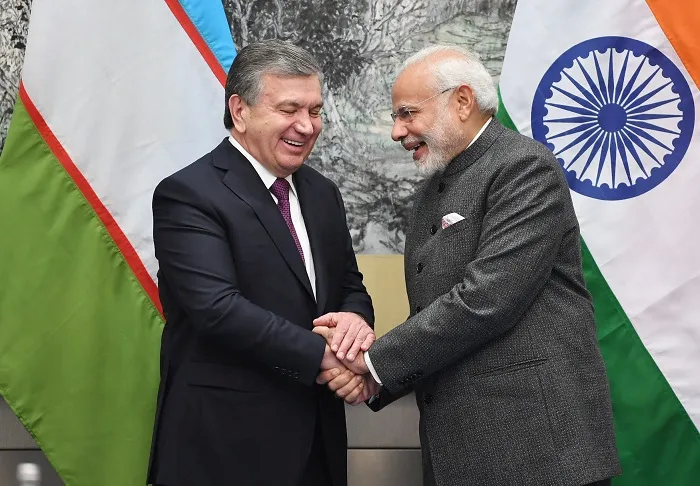In what is being seen as yet another effort by India to tighten its bonds with the landlocked regions of Eurasia after the turbulence in Afghanistan, New Delhi is planning to invite leaders of five countries from Central Asia as chief guests for next month's Republic Day celebrations.
The invitation is part of India's effort not only to work on the commercial and political tracks but to knit the broken cultural bonds between the two contiguous regions.
While the official confirmation is awaited, it is believed that the Ministry of External Affairs is already chalking out details to invite the Presidents of Tajikistan, Kyrgyzstan, Uzbekistan, Turkmenistan and Kazakhstan as special guests on the Republic Day.
After Russian President Vladimir Putin's visit to New Delhi last week, the latest move could turn out to be one more foreign policy masterstroke by the Narendra Modi government.
The territory is also Moscow's traditional foreign policy priority and forming Greater Eurasian partnership is part of Putin's initiative.

PM Modi and Tajikistan President Emomali Rahmon
It is expected that the blueprint for the key Republic Day visits will be drawn up by the foreign ministers during the third meeting of the India-Central Asia Dialogue which is scheduled to be held later this week.
The first meeting of the format was held on 13th January 2019 in Samarkand whereas the second was conducted virtually under the chairmanship of the External Affairs Minister of India S Jaishankar on October 28, last year.
The visit of five top leaders from Central Asia would follow a similar gathering of Association of Southeast Asian Nations (ASEAN) heads in New Delhi on the Republic Day in 2018.
Not just with the instability in Kabul, which has wider ramifications for the region, members of the Commonwealth of Independent States (CIS) are also becoming increasingly uncomfortable with the growing Chinese presence through various infrastructure projects.
Unlike China's Belt and Road Initiative (BRI), India has maintained that respect for sovereignty and territorial integrity remains a prerequisite for any connectivity initiative.
Last year, during the virtual summit between PM Modi and Shavkat Mirziyoyev, the President of Uzbekistan, both sides had reiterated their continued commitment to various connectivity projects, including the 7200-km-long International North–South Transport Corridor (INSTC).
Similarly, Delhi-Dushanbe partnership has also witnessed a new high after PM Modi and Tajikistan President Emomali Rahmon decided to reinvigorate the relationship between both the countries in July 2015.
The Central Asian countries have realised the importance of Chabahar Port, a deep water port in Iran being developed by India, and also its proposed integration with the INSTC.
When it finally becomes operational, the corridor would connect India, Iran, Afghanistan, Azerbaijan, Russia, Central Asia and Europe.
Also Read: Jaishankar begins mission to Eurasia with visits to three countries in the next four days




















